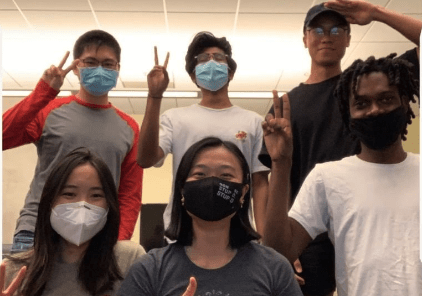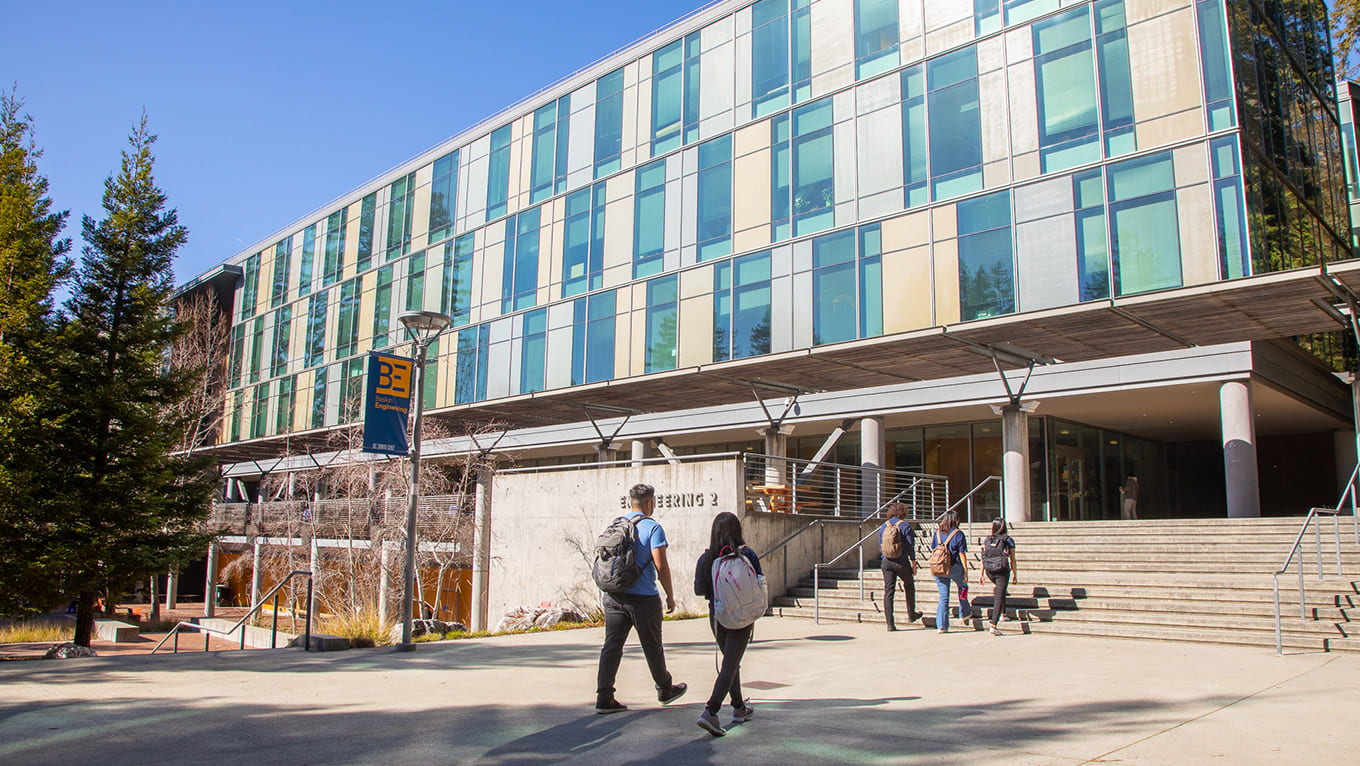After conducting six weeks of thorough, strategic needs-assessment work, a team of UC Santa Cruz students developed a prototype of an interactive and engaging career exploration app for local high school students.
The app, CareerTopia, was one of several final projects completed by students during the spring 2022 offering of Technology and Information Management (TIM) 175: Business Strategy and Information Systems. Led by David Lee, assistant professor of computational media and director of the UC Santa Cruz Tech4Good Lab, each TIM 175 course blends the concepts of community-focused experiential learning and producing technology for public interest. Your Future Is Our Business (YFIOB), a Santa Cruz-based organization that supports youth career exploration, was the course’s spring 2022 partner.

The class benefits both students and their nonprofit organization partners. Students are introduced to business strategy and taught how to design digital products or use digital tools to support businesses in achieving their goals and sustaining a competitive advantage. Nonprofits get the unique opportunity to work directly with students to discover opportunities for their organization and employ technical solutions that help streamline their processes and further their impact in the local community.
“This course was very enlightening in terms of real-world applications of my program,” said Akila Rajapaksha, a fourth-year TIM major. “I gained a lot of experience in leadership, teamwork, time management, project planning, and design.”
In the opening weeks of the course, students engaged in needs assessment work for YFIOB, which included conducting interviews and surveys, gaining a deeper understanding of strengths and weaknesses and opportunities for the organization. In the final weeks, students worked in teams to complete community-engaged exploration projects, some using existing digital tools to provide immediate value to the organization and others exploring new applications to support YFIOB’s future initiatives.
Furthering community impact through new tools

The design concept that most interested and excited YFIOB was the CareerTopia app. CareerTopia has both a student and parent user interface. Through interactive modules set in a playful environment, high school students explore different industry and career interests. The work completed in the student dashboard is converted into data that is then stored and shared on the parent dashboard, so parents can learn about their students’ interests and kickstart productive dialogues with their students about their futures.
“The theme lends itself very well to being gamified. A lot of the design elements were derived from the games our team grew up playing,” said Rajapaksha, who led the prototype design for CareerTopia. “Those colorful, vibrant elements are powerful and help keep students engaged. We all had a lot of fun creating this design.”
Rajapasksha spent much of his time during the final weeks of the course learning different web application and graphic design tools, including Figma and Adobe Illustrator, to help his team build a quality design.
“I was really impressed with the team’s design work,” Lee said. “There’s not a lot of instruction and guidance on the principles of building these designs in this course, so they did a really good job. And the mentorship they received from Elizabeth Fonseca, a member of the teaching staff and a UCSC undergrad who had taken a previous design class of mine, really helped them create a well put-together prototype in four weeks.”
Because the focus of TIM 175 is on developing a deep understanding of the organization, mapping client experiences and needs, and exploring concepts that can support its strategy, the implementation of longer-term concepts are out of scope for the course. Lee’s vision is that the work produced in TIM 175 can be passed on to engineering courses or labs that focus on implementation, but do not have the time to deeply understand community or user needs.

Providing immediate value
Part of what makes this work valuable for community partners is that while some student teams are exploring longer-term concepts, other teams are implementing solutions that use existing digital tools to provide immediate value. During the spring 2022 course, one student team implemented a database to streamline YFIOB’s information management workflows, improving an outdated spreadsheet process used to track and engage their volunteers. The student team set up a database using a tool known as AirTable, which allows users to engage with the data in a more effective and intuitive way. The students also transferred hundreds of records over for YFIOB and created a training manual to help YFIOB members learn how to use the tool.
Another spring 2022 project focused on YFIOB’s “What To Be” podcast, a series of interviews with career professionals to provide insights into different industries and job roles. To make it easier for students to navigate to industries and roles they are interested in, the team curated hundreds of short clips from the podcast series and created a webpage for students to explore insights by different industry sectors.
“An important part of the course design was making sure we provided immediate value to the nonprofits we partner with. A major challenge in university-community partnerships is that student work sometimes stops at an interesting idea rather than providing actual value,” Lee said. “By designing a portfolio of deliverables, with long-term design concepts complemented by immediate solutions and rich reports from weeks of needfinding, students are able to provide organizations with not only ideas for the future, but also immediate value and deep insights.”
This fall, a group of student researchers in Lee’s Tech4Good Lab is working on a concept that originated in the spring class: using TikTok content to support student career exploration. The researchers are building on this fun and engaging content delivery idea to investigate new ways to harness the rich content of social media to better support student needs.
“There are a lot of options for furthering the longer-term concepts explored in this class,” Lee said. “Some of those options include conducting the research in my lab, like the TikTok idea; passing the project onto a capstone course; or continuing app development through a hackathon like CruzHacks. This was only the second time this class was offered in this way, so I’m excited to see this course transform over the next few years.”
This block group hides your featured image, remove this block group to show your featured image again.




